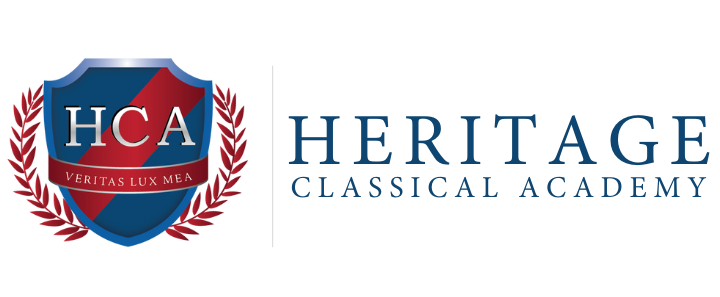
Classical Christian Education
A Winsome Legacy
Christian
We believe that God’s character is revealed in His Word and in every facet of creation. Therefore, we teach that all knowledge is interrelated and instructs us about God Himself. We affirm that all our actions should be done “heartily, as unto the Lord” (Colossians 3:23), so we encourage quality academic work and maintain high standards of character and conduct. Our highest goal is to honor Christ by providing instruction that challenges our students to live and think within a Christian worldview.
Classical
We approach education with the end in mind. We know that at its heart, education is a formative enterprise—we are cultivating children to embrace, to embody, and to extend a vision of “the good life.” This good life is not high scores on standardized tests, a lucrative career, or college acceptance. Rather, the good life and aim of education is the cultivation of virtue and rightly ordered affections. This formative work is done through great teachers and great content. At Heritage, students are invited into the Great Conversation, which is the ongoing dialogue of the greatest minds in Western Civilization about the most influential ideas and stories, concerning God, man, meaning, and salvation.
"The time-tested ideas behind classical Christian schools are foreign to most modern educators. The model’s transformative power lies in one truth: Christ is Lord of all. So, what does that mean for how we live? How we think about things? What we value and what we love? In short, education is primarily about what we are trained to love, not just what we are taught to know.
Classical Christian Education
Heritage Classical Academy uses the proven classical model of education developed by the ancient Greeks and Romans. Refined through the ages and reintroduced in the United States, this method produces true scholars: students who love to learn, think clearly, listen carefully, reason and write persuasively, and speak precisely.
Its Christ-centered and language-focused approach divides learning into three phases: Grammar, Logic and Rhetoric. Each phase coincides with the natural development of a child.
-
In the elementary years, students are introduced to the grammar, or facts, of each subject while they are young and delight in memorizing, absorbing, and reciting. These young minds demonstrate their ability to memorize facts, figures, and historical events, which will serve them well in the subsequent phases of learning.
-
In the middle school years, as minds become more inquisitive, curious, and prone to question and challenge, students learn how to organize facts and data into well-reasoned and cogent arguments. Facts are not enough! Students begin to develop the ability and skill to reason and debate, discerning and distinguishing between true and false statements.
-
In high school, students develop a deeper sense of how they are perceived by others and desire opportunities to express themselves. Therefore, an emphasis is placed on rhetoric in which students learn to use their grammar and logic training to communicate their ideas persuasively, primarily through writing, but also by means of speech, drama, art, and film.
The Goal
Classically trained students become skilled in logical thinking, writing, and debate. They know what they believe and why. Academic subjects are interrelated and integrated with God and His Word at the center of it all. Students are prepared to serve Christ and His kingdom as they are equipped to labor for Him regardless of their calling.
